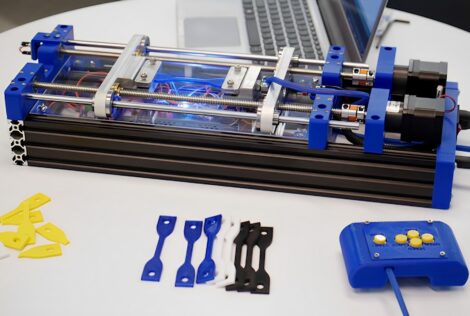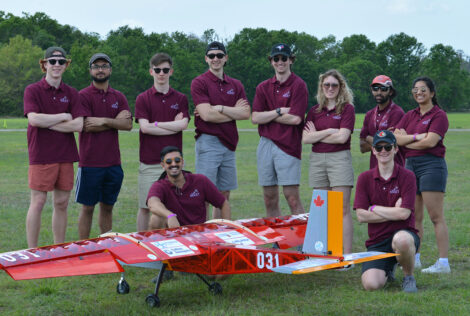
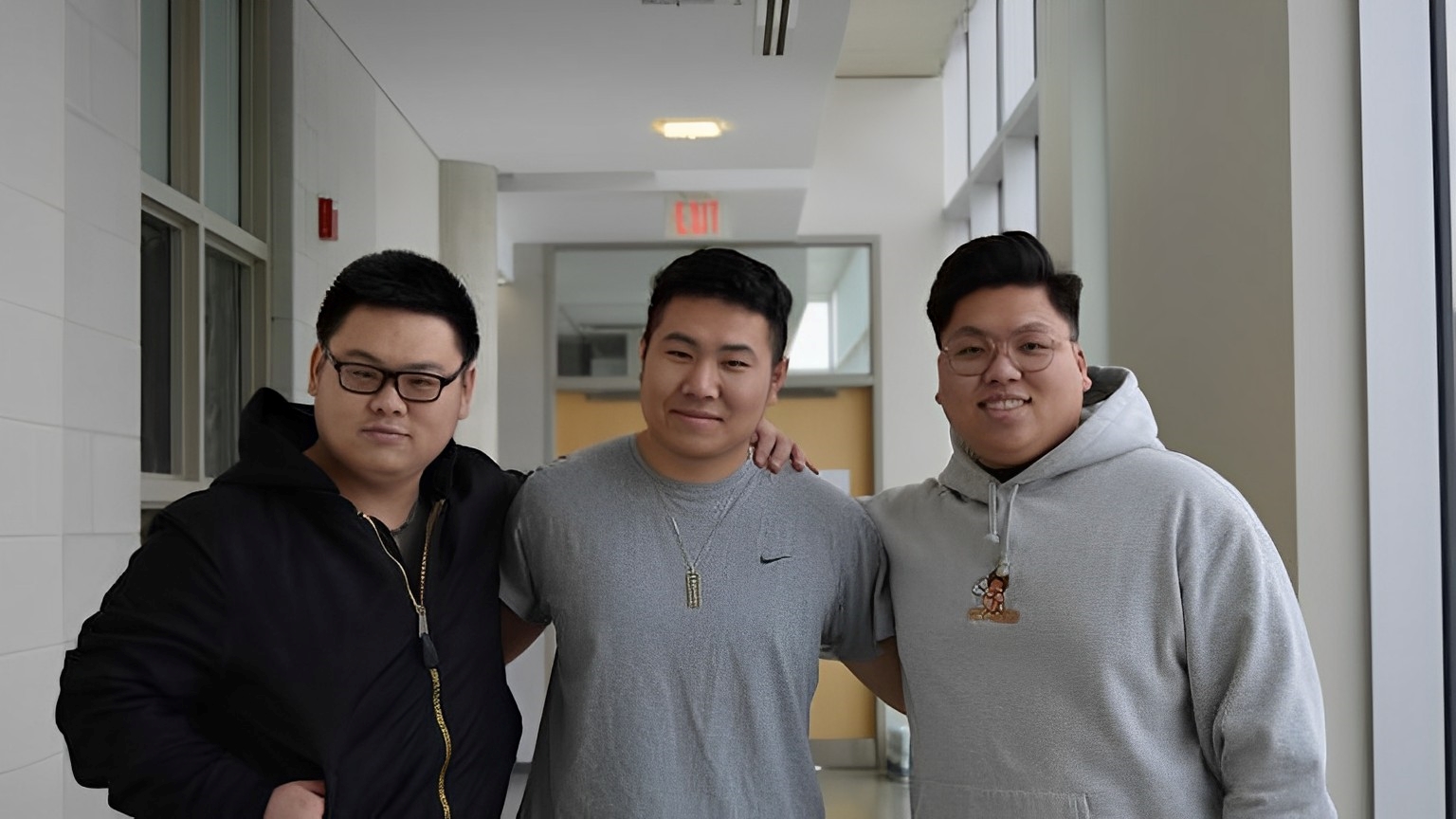
1687- The number of teams across 93 colleges & universities that participated worldwide in GLO-BUS this Fall; a virtual, business strategy competition where students manage a simulated tech company over an 8-week period.
So, how exactly did one team from McMaster’s W Booth School of Engineering Practice & Technology (SEPT) remain in the top 100 for the duration of the competition? You would need to ask Yinyouyang (Jimmy) Bu, Eric Yang and Rui(Rick)Yin to find out.
Between October and November, Automation Engineering Technology students, Bu,Yang and Yin made W Booth School history, earning a Global Top 100 Ranking each week, and receiving a Bulls Eye Award bonus point for accurately forecasting total revenues, earnings per share, and image rating in week 10 of the simulation.
Competing against final-year commerce and second- year MBA students, most of whom have taken numerous classes in business related topics such as finance, economics, marketing, operations, and human behaviour, the trio’s exceptional performance is a testament to the applied nature of the integrated engineering-management curriculum and critical thinking skills, students develop throughout SEPT’s BTech program.
“It’s a dream for every student to make their school feel proud.” Says Bu on representing McMaster in the simulation.
Yang, contemplating on their achievement says, “I feel honoured and ecstatic for us to have achieved such a feat. Similarly, Yin says he is “Pleasantly surprised and proud,” of the team’s outstanding performance.
When asked to share their winning approach, the team point to ‘differentiation strategy’- a business term defining how you make your firm stand out from otherwise similar competitors in the marketplace, and one taught in the online Strategic Management course of their program.
“We kept to that throughout the whole simulation and focused on market trends and how other teams’ strategies would affect us.” says Yang.
It’s also fair to say that their collaborative, team effort no doubt played a part in their achievement.
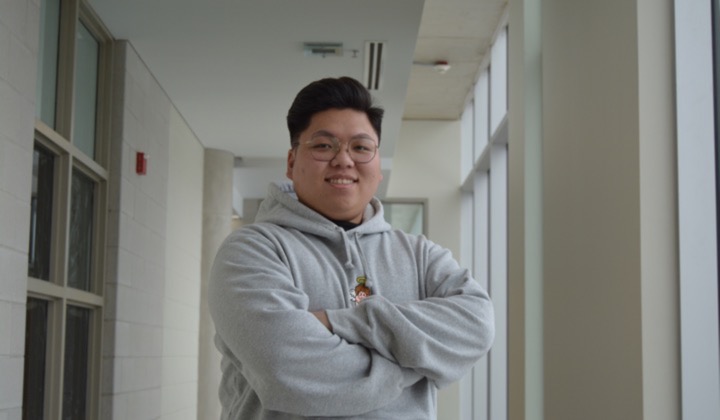
“Teamwork was a major contributor to our success. It can be difficult to make so many decisions while having everyone on the same page,” Yang describes. “However, with our communication and willingness to understand each other’s points of view, we were able to productively combine our skills and work together effectively.”
Despite having a “pretty busy term,” this semester, the team dedicated every Thursday afternoon and night to the simulation, even meeting on weekends when they couldn’t agree on certain aspects.
“We spent time extrapolating the market average and our main competitors’ statistics every time before the next decision period of the simulation…. genuinely, we spent most of our free time on it, as we had 3 more projects to work on and 2 busy courses full of labs and assignments.”
Clearly, their dedication paid off and earning a Global Top 100 ranking within the first week of the simulation gave them enough momentum to keep pushing.
“After starting the first few rounds of the simulation well, we were in a unique position with a large target on our backs from our competitors.” Yang describes. “This was more than enough to motivate us to stay focused and made us realize that we needed to properly analyze and consider every detail if we wanted to continue doing well.”
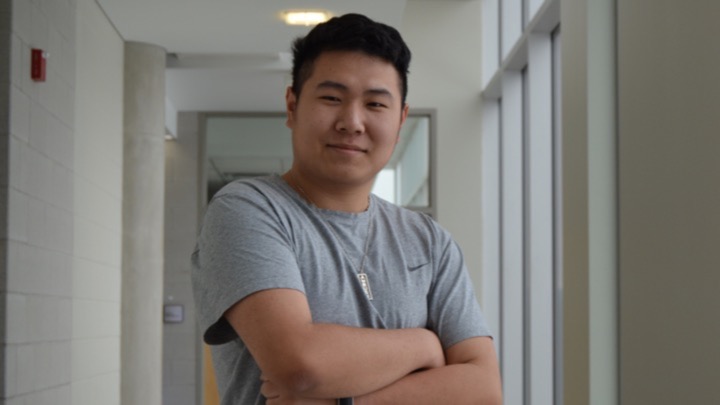
Unsurprisingly, all three credit their success to the skillful guidance of Allan MacKenzie, Assistant Professor in the W Booth School and instructor in Strategic Management and Management Principles.
“I am very happy to be taught and mentored by Professor Allan MacKenzie.” Says Bu.
“He was extremely impactful to our success in the competition,” Yang agrees. “All our strategies and decisions were made based on the topics he covered in the course. He was also extremely helpful in guiding us to fully understand the benefits and potential risks we could run into based on the decisions we were making.”
Professor MacKenzie, who has developed and taught various management courses in the undergraduate BTech program is delighted by the team’s recent success.
“I’m incredibly proud of this student team’s hard work and aptitude in utilizing the course material and teachings to realize this level of success in my Strategic Management course,” He says.“Jimmy, Eric and Rick have demonstrated they can ‘punch above their weight class’ and will undoubtedly become valuable contributors in their future engineering-technology careers.”
MacKenzie is correct to believe that the team’s GLO-BUS experience will play a part in their future career choices, but perhaps not in the way most would expect.
Yin, whose initial career path steered towards mechanical engineering says, “After this semester’s simulation experience, I feel that I can also develop in the direction of product design improvement.”
Bu goes as far as to say that the GLO-BUS simulation “corrects [his] future path.”
“I plan to start a company 2 or 3 years after graduating because I saw so many successful people with their secret path to success, which is all about creating a company.” He continues “After dealing with GLO-BUS, I found that there are so many vital elements to make a company perform well.”
Yang, who also plans to become a mechanical engineer says that his GLO-BUS experience has “sparked” a new interest in him and he now sees a “Strategic Management role” in his future. “I’ve always enjoyed problem solving, and this felt like a new type of challenge with new elements and factors that I really enjoyed trying to analyze and solve.”
Speaking to the team, it’s evident that the most profound takeaway from their experience, are in the lesson’s learned.
“The lesson I will take away is confidence.” Says Bu “I was a different boy for my whole university life. I was always afraid to express myself or ask for help when I met any difficulty…But this time, it gave me confidence and made me feel at least I could achieve something. There is always a place to shine for everyone; you just need to try your best.”
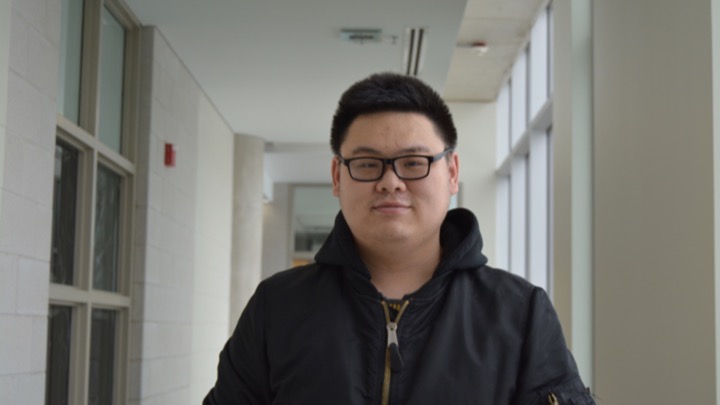
Yin’s takeaway was “Quality is more than making a good product – you must consider the company’s marketing, operations, financing and organizational capabilities to succeed.”
Also reflecting on the experience, Yang says he has learned to “step back and look at the big picture.” Explaining that it can be “extremely helpful to deliberate and re-evaluate the problem with parts we didn’t initially consider important.”

